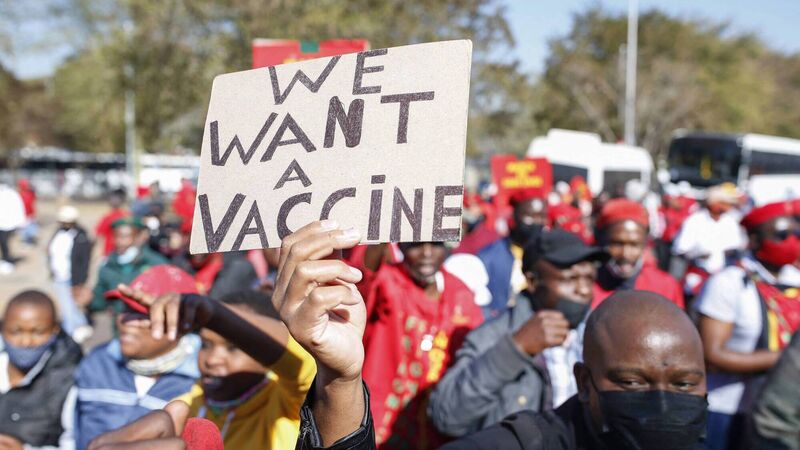Amnesty slams pharmas over 'unprecedented human rights crisis' of vaccine inequality

A member of the Economic Freedom Fighters (EFF) holds a sign calling for the South African Health Products Regulatory Authority (SAHPRA) to give the green light to China's Sinovac and Russia's Sputnik vaccines, amid a third coronavirus wave. Picture: by Phill Magakoe / AFP via Getty Images
The six main companies behind the world’s Covid-19 vaccine production are fuelling “an unprecedented human rights crisis” by refusing to waive intellectual property rights and share vaccine technology, Amnesty International (AI) has said.
In a new report, Amnesty International also criticised AstraZeneca, BioNTech SE, Johnson & Johnson, Moderna, Novavax, and Pfizer for refusing to participate in initiatives aimed at boosting global vaccine supply.










